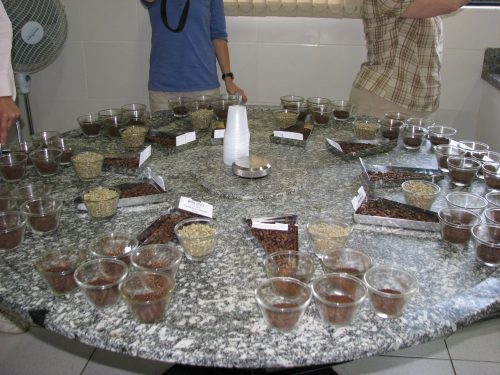
For specialty roasters, sales of decaf coffee in Michigan can account for approximately 15 to 20 percent of their sales, a significant enough portion to warrant a closer look. The reason a buyer will choose decaf coffee is as individual as their taste.
How we get to decaf depends on the method, but here are two popular ways roasters turn that jolt into something with a little less kick.
European Process
The European process uses methylene chloride, which is a highly selective solvent for caffeine. This patented method retains many of the coffee components responsible for aroma and taste. Green beans are bathed in hot water and then circulated in the chemical-rich environment drawing out the caffeine. The chemical is extremely volatile which means it dissipates at room temperature, all the more so at elevated roasting temperatures. The caffeine is extracted, and the beans are then dried to the original moisture content, ready for roasting. Once roasted there is no trace of the chemical compound.
Swiss Water Process
Swiss water decaf coffee is created using solubility and osmosis. First, raw beans are soaked in hot water to dissolve the caffeine. The water is then passed through an activated charcoal filter sized to capture only the larger caffeine molecules. This process allows smaller molecules to pass through, preserving the flavor but not the caffeine.
If high-quality specialty beans are used to decaffeinate, the result is a delightful cup of coffee with little difference from its caffeinated version. Whether you like decaf coffee or need a little boost to start your day, a specialty roasting company is sure to have the right blend for you.
